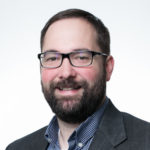The comments in my most recent post, “Delaying Sex Until Marriage Improves Marriage,” reminded me of a common
response to many of our more research-based posts here at Boundless. Many Boundless
readers are quick to point out the significant difference between correlation and
causation in research studies. And to their credit, it is important to consider
whether a study actually proves causality or merely demonstrates a correlation.
Nevertheless, even correlations can be helpful in providing insight into what
is true and how we might live well.
One commenter expressed his belief that studies and polls, “just
aren’t effective anymore.” He explained:
The best approach imo, would be to
state your personal experience…what has and hasn’t worked for you…and just
be very conversational about it. I can’t speak for everyone, but I would
certainly give more weight to something like that.
This is a significant statement about how we learn. Every person
gives different sources of knowledge different levels of clout. Every day, we
each make decisions about whom or what we will trust for reliable and accurate information.
Most of us will make hundreds of such decisions before the end of the day. We’ll
decide whether to trust information conveyed by traffic signs, weather reports,
advertisements, diet books, research, Facebook posts, sermons, tweets, performance
reviews, criticisms, financial advice, conversations with colleagues, and talks
with family and friends. Needless to say, we all regularly make decisions on the
trustworthiness of various messages.
So it’s not surprising that God’s Word says a lot about considering
our sources. Biblically, wisdom is often used to describe the ability to think
well about whom and what we trust to provide us truth. Proverbs teaches that
wisdom is a blessing (3:13), to be pursued (4:7), better than jewels (8:11), for
the humble (11:2), more valuable than silver and gold (16:16), despised by
fools (1:7), and praiseworthy (31:26). Above all, Proverbs 2:6 teaches, “The
Lord gives wisdom.” Regardless of what you are learning, it’s wise to consider
the level of expertise of the source and make careful decisions about what you trust and what you don’t.
It’s into this scope that I bring a few thoughts on research
causality and correlation. Studies and polls are one vehicle of knowledge. And
as the above commenter noted, we shouldn’t necessarily take them at face value,
but instead consider what the researchers found, how they found it and whether
it seems consistent with everything else we believe to be true. It is wise to
give more weight to causality than correlation and consider the methodology
employed.
One of the reasons there is such a variety of response to research
like this is the variety of biases people bring to such topics. In life, there
is no such thing as an unbiased opinion. We all bring a lifetime of opinions
and perspectives to everything we learn. We can’t necessarily undo these
biases, but we can be aware of them and know where they came from. Understanding
the reasons we believe what we believe and the levels of expertise those beliefs
reflect is at the very heart of wisdom.
If you believe premarital sex is good because you’ve done it
and suffered no ill effects, your opinion is based upon your own experience. Someone
else might avoid premarital sex because they read research — like that posted —
suggesting premarital sex could harm relationships. Still another person might
avoid premarital sex because they believe God forbids it. Each of these people
has made a decision based on different sources of knowledge with distinct levels
of expertise.
My concern is that many of us don’t take an honest look at the
level of expertise our beliefs reflect. A personal testimony might seem helpful,
but is limited in scope. We often can’t see how poor decisions impact us years
and even decades later. Research studies may provide a stronger picture, but
even so, shouldn’t trump the wisdom of God.
My conviction is that God is the
highest expert on all things. He created the entire known universe and knows everything
about everything. Consider that every scientific endeavor is a pursuit of something
God already knows and even designed. Therefore, when God speaks, we should stop and listen. That’s one of the reasons I’ve given myself to the regular study of
God’s Word. I believe it is true and will lead me in wisdom.
Unfortunately, we somtimes place ourselves and our own expertise
over the expertise of God. We hear God’s commands and literally believe
we know better than Him. It’s always costly to ignore the wise advice of an expert, but it’s downright dangerous to ignore the warnings of the One who made all things.
As part of my work, I spend a lot of my time with various research
studies. I’ve read good studies, and I’ve read bad studies. But I always put all
I learn through the grid of God’s truth. He doesn’t often give lists of the specific
consequences for disobedience, but He does call us to trust in His expertise.
We do well to humbly submit our biases, opinions and perspectives before Him,
and ask Him to give us the wisdom to take Him at His Word, because He is the
Expert of Experts.











